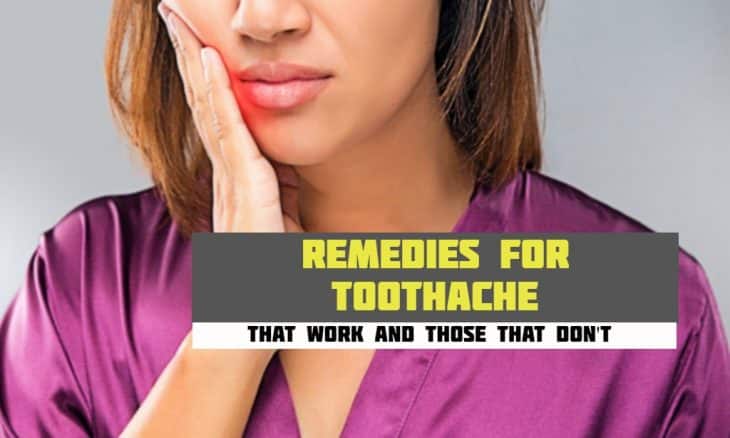
Remedies that work (and those that don’t) for toothache
If it appears unexpectedly, it is appropriate to know what is to be done to reduce the pain and not worsen the injury while asking the dentist for a time.
A toothache can be very intense. Due to multiple causes that are not easy to identify and even in some cases lead to a serious condition. So it requires an inaccessible visit to the dentist.
When it arises suddenly, and it is not possible to go to the dentist right away. It is advisable to know some basic measures about what is appropriate but also what should not be done in these cases.

They will not solve the problem until the specialist does not take action on the matter, but they will help mitigate the inconvenience until the time of the visit comes.
Read Also: What caused teeth to turn black?
Here is the list of remedies that can be useful in toothache.
Remedies that can be useful in toothache
The most common cause is usually a dental infection, but there are other reasons: breakage of the piece, an excess of pressure on it for grinding teeth (bruxism).
There are some “homemade” measures you can take:
- Applying cold on the area of the affected face acts as a local anesthetic.
- You can put ice wrapped in gauze (never put it directly on the skin) on the sore cheek, or apply cold compresses to the area.
- The mouthwashes with salt and warm water several times a day also relieve pain (not to the scam, just rinse and discard the mixture).
- Cleaning possible food debris in the affected tooth with dental floss lowers the pressure and that can also relieve a bit.
- There are antiseptics and anesthetic sprays that calm the discomfort temporarily. Although neither cure nor can be used for many days. They are simply timely remedies until the medical evaluation arrives.
- To alleviate the discomfort is the main reason why. If after trying the recommendations that we have mentioned above the pain does not improve, and you decide to take a paracetamol-type pain reliever, and/or anti-inflammatories such as Ibuprofen or diclofenac, do so as long as there is no contraindication and consult with the pharmacist.
9 Home remedies that don’t work to avoid toothache
Even if you have heard that these remedies work to stop a toothache, try to avoid applying the following “tricks” to relieve pain:
- Avoid taking acetylsalicylic acid. If the gum is tender and bleeds, the bleeding will increase.
- Another widespread practice is to put a piece of this drug in the tooth to relieve pain. This can cause a chemical burn in the soft parts of the mouth.
- Do not take antibiotics either. Although there may be an oral infection. It is not always the reason for the pain and you could make the situation worse instead of improving it. The dentist will recommend them if necessary.
- Very hot or very cold foods should not be taken, nor the hardest so that the tooth does not suffer anymore. Feeding should be based on tempered and soft consistency products.
- Sugar makes the pain worse, which means that sweets are not recommended for a toothache.
- Putting ice directly on the tooth will only aggravate the picture. Act as if you chew something cold, giving more pain.
- Do not smoke. Increases inflammation and, when sucking, causes more discomfort.
- The mouthwashes with alcohol should not be done. They relieve at the moment, but in the long run, they can damage the gum.
- Lying on the painful side increases the pressure on it and, consequently, the picture increases.
AVOID ORAL-DENTAL PROBLEMS
That you do not feel discomfort does not mean that the problem has been resolved. It will surely come back, and it will likely do so with greater intensity. This means that you have to visit the dentist anyway.
Maintaining a clean and healthy mouth is essential to prevent problems of this type.
- Extreme daily hygiene through proper brushing,
- The use of dental floss,
- Interdental brushes to remove food left between the teeth,
- Specific mouth- and- mouth mouthwashes after meals,
- In addition to periodically visiting the dentist. At least once a year, to detect possible problems that may take time to appear and that it is necessary to solve as soon as possible.
Read Also: What Causes Receding Gums?




